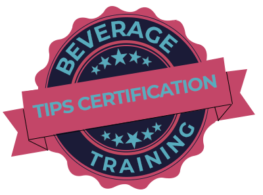Alabama TIPS Certification course aims to promote the responsible consumption of alcohol, prevent overconsumption, and reduce the potential for alcohol-related incidents.
The Alabama TIPS Alcohol Certification Training covers various topics related to responsible alcohol service, including:
- Identifying fake IDs and underage customers.
- Recognizing signs of intoxication.
- Effectively communicating with customers to prevent overconsumption.
- Intervention techniques to handle difficult situations.
- Legal and liability issues related to alcohol service.
| Course Name | Hours | Price | Checkout |
|---|---|---|---|
| TIPS On-Premise Alcohol Server Training | 3 | $34.99 | Enroll |
| TIPS Off-Premise Alcohol Seller Training | 3 | $34.99 | Enroll |
| TIPS Off-Premise & Alcohol Delivery Training | 3 | $34.99 | Enroll |
| TIPS Concessions Alcohol Training | 3 | $34.99 | Enroll |
| TIPS Gaming Alcohol Training | 3 | $34.99 | Enroll |
| TIPS Replacement Card | $20.00 | Enroll | |
| Corporate Order Form | Request |
Importance of Responsible Vendor Server Program in Alabama
· Adhering to the Law: It is against the law to serve alcohol without the necessary license, leading to significant penalties like fines and potential legal charges. Possessing the appropriate license ensures that your establishment operates within legal boundaries.
· Regulation and Oversight: Rules are in place to oversee alcohol consumption, ensuring public safety, responsible behavior, and adherence to established guidelines. Possessing a license enables authorities to monitor and manage alcohol distribution, thereby preventing issues like underage drinking and excessive consumption.
· Accountability and Legal Duty: Holding a TIPS license signifies your commitment to responsible alcohol service. This commitment can shield your business from legal responsibilities that could arise due to accidents, injuries, or incidents related to alcohol consumption on your premises.
· Building Customer Trust: Possessing a valid alcohol license can elevate your establishment’s reputation. Customers tend to have more confidence in businesses that operate ethically and within legal boundaries, which contributes to a positive image and customer loyalty.
· Economic Contributions: Licensed establishments play a role in local and state economies through taxes and fees. Revenue generated from licensing fees and alcohol sales taxes supports a variety of public services and initiatives.
· Versatility in Operations: Different licenses cater to diverse forms of alcohol service, such as serving on-site (bars and restaurants) and off-site sales (liquor stores). Having the appropriate license permits you to conduct your chosen type of alcohol-related business legally.
· Community Engagement: Acquiring a license entails interacting with local authorities, community members, and regulatory bodies. Establishing positive relationships and open communication with these stakeholders can have a favorable impact on your business’s reputation within the community.
What is the age requirement for serving alcohol in Alabama?
The minimum age for individuals to serve alcohol is 19 years. People must be at least 19 years old to be employed as servers or bartenders in establishments that provide alcohol. This age condition is applicable to both on-site and off-site alcohol service.
Do I need a bartender license in Alabama?
In Alabama, possessing a specific “bartender license” is not obligatory for engaging in bartending work. Instead, individuals handling alcohol in roles like bartenders and servers are commonly expected to fulfill training under the Responsible Vendor Program (RVP). This specialized training is intended to provide education on responsible alcohol service, covering aspects like ID verification, identifying signs of intoxication, and comprehending legal and liability matters.

